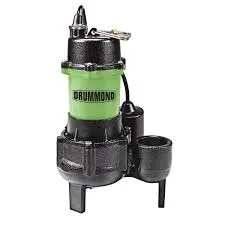English
- Afrikaans
- Albanian
- Amharic
- Arabic
- Armenian
- Azerbaijani
- Basque
- Belarusian
- Bengali
- Bosnian
- Bulgarian
- Catalan
- Cebuano
- Corsican
- Croatian
- Czech
- Danish
- Dutch
- English
- Esperanto
- Estonian
- Finnish
- French
- Frisian
- Galician
- Georgian
- German
- Greek
- Gujarati
- Haitian Creole
- hausa
- hawaiian
- Hebrew
- Hindi
- Miao
- Hungarian
- Icelandic
- igbo
- Indonesian
- irish
- Italian
- Japanese
- Javanese
- Kannada
- kazakh
- Khmer
- Rwandese
- Korean
- Kurdish
- Kyrgyz
- Lao
- Latin
- Latvian
- Lithuanian
- Luxembourgish
- Macedonian
- Malgashi
- Malay
- Malayalam
- Maltese
- Maori
- Marathi
- Mongolian
- Myanmar
- Nepali
- Norwegian
- Norwegian
- Occitan
- Pashto
- Persian
- Polish
- Portuguese
- Punjabi
- Romanian
- Russian
- Samoan
- Scottish Gaelic
- Serbian
- Sesotho
- Shona
- Sindhi
- Sinhala
- Slovak
- Slovenian
- Somali
- Spanish
- Sundanese
- Swahili
- Swedish
- Tagalog
- Tajik
- Tamil
- Tatar
- Telugu
- Thai
- Turkish
- Turkmen
- Ukrainian
- Urdu
- Uighur
- Uzbek
- Vietnamese
- Welsh
- Bantu
- Yiddish
- Yoruba
- Zulu
Telephone: +86 13120555503
Email: frank@cypump.com
Aug . 18, 2024 05:17 Back to list
Understanding the Importance of Regular Septic Tank Pumping for Homeowners
The Importance of Septic Tank Pumping A Guide to Maintaining Your Home's Wastewater System
Septic tanks play a crucial role in the wastewater management systems of many homes, especially in rural areas. They are designed to treat and manage household sewage and wastewater effectively. However, like any other system, they require regular maintenance to function properly and efficiently. One of the most critical aspects of this maintenance is septic tank pumping, which should not be overlooked.
Septic tanks are buried underground, and their primary function is to collect and separate solid waste from liquid waste. Over time, solids that accumulate in the tank can exceed the tank's capacity, leading to various issues. Regular pumping helps to remove these solids, preventing blockages and system failures. It is generally recommended that homeowners pump their septic tanks every three to five years, though the exact frequency can depend on several factors, including the size of the tank, the number of people in the household, and the amount of wastewater generated.
The Importance of Septic Tank Pumping A Guide to Maintaining Your Home's Wastewater System
Ignoring the need for septic tank pumping can lead to costly repairs and extensive damage. If the wastewater system fails, homeowners may face an expensive emergency pumping service, repair costs, and potential damage to their property. Additionally, a failing septic system can contaminate groundwater, posing environmental risks and leading to public health concerns.
septic tanks pumping

Proper septic tank maintenance, including timely pumping, is essential for prolonging the lifespan of the system. A well-maintained septic tank can last for several decades, whereas a neglected one can fail prematurely. Homeowners should keep an eye on any signs that indicate their system may need attention. Warning signs include slow drains, gurgling sounds in pipes, unusual odors around the tank area, or wet spots in the yard where the tank is located.
Septic tank pumping should always be performed by a licensed professional who is experienced in handling septic systems. These professionals not only pump the tank but can also evaluate its condition, check for leaks, and provide valuable advice on how to maintain the system. Additionally, they can inform homeowners about potential problems before they escalate, saving money and ensuring the system operates smoothly.
In addition to regular pumping, homeowners should adopt mindful practices to protect their septic systems. Avoid flushing non-biodegradable items, grease, and heavy-duty chemicals down the drain, as these can disrupt the natural bacteria that break down waste in the tank. Also, conserving water can lessen the load on the system, extending its lifespan and functionality.
In conclusion, septic tank pumping is an essential maintenance task that ensures the efficient operation of your home's wastewater system. By committing to regular pumping and following good practices, homeowners can prevent costly repairs, protect their health, and contribute to environmental sustainability. Understanding the significance of this routine procedure is key to maintaining a healthy and functional septic system for years to come.
-
Horizontal Split Case Pump with GPT-4 Turbo | High Efficiency
NewsAug.01,2025
-
ISG Series Pipeline Pump - Chi Yuan Pumps | High Efficiency, Durable Design
NewsAug.01,2025
-
Advanced Flue Gas Desulfurization Pump with GPT-4 Turbo | Durable & Efficient
NewsJul.31,2025
-
ISG Series Vertical Pipeline Pump - Chi Yuan Pumps | Advanced Hydraulic Design&Durable Construction
NewsJul.31,2025
-
ISG Series Vertical Pipeline Pump - Chi Yuan Pumps | Energy Efficient & Low Noise
NewsJul.31,2025
-
pipeline pump - Chi Yuan Pumps Co., LTD.|High Efficiency&Low Noise
NewsJul.31,2025










